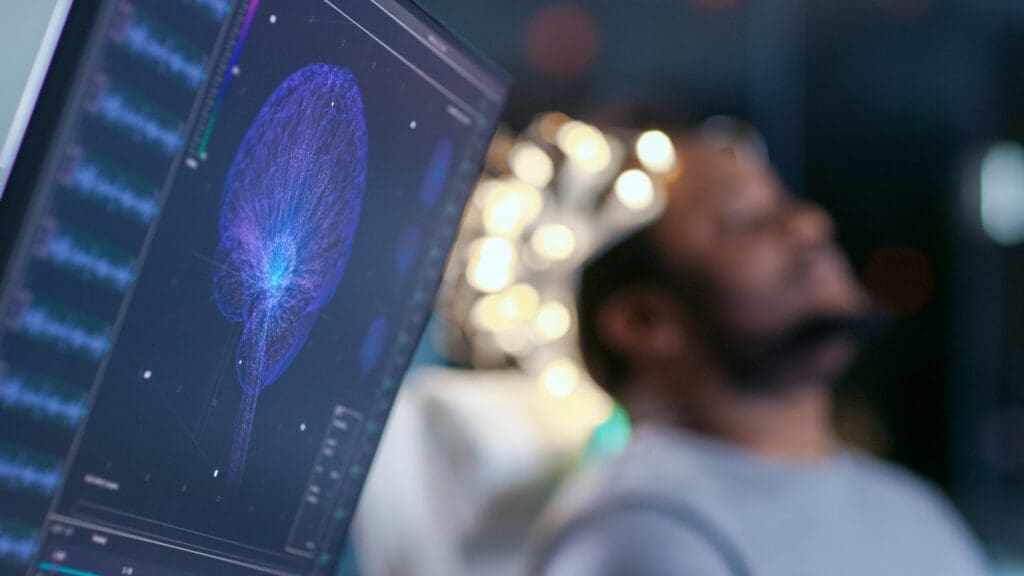The first step in addressing a potential sleep disorder is to conduct a sleep study. Dr. Evans and Dr. Ziemba work with local medical professionals to coordinate a sleep study and follow-up treatment. Sleep studies are essential tools in diagnosing sleep apnea and other sleep disorders. These tests, often conducted in a sleep clinic or at home, provide valuable insights into how the body functions during sleep. By monitoring various bodily functions such as brain waves, heart rate, oxygen levels, and breathing patterns, sleep studies help specialists identify any disruptions that may be affecting sleep quality.
What Is a Sleep Study?

A sleep study is a medical test that monitors various bodily functions while you sleep to identify any issues that may be disrupting your sleep. These studies are usually conducted in a sleep clinic or sometimes in the comfort of your own home, depending on the type of study and the severity of your symptoms.Depending on the type of study and the severity of your symptoms, these
The primary goal of a sleep study is to diagnose sleep disorders such as sleep apnea, insomnia, restless leg syndrome, or narcolepsy. During the study, sensors are attached to the patient’s body to monitor brain waves, heart rate, breathing patterns, oxygen levels, and muscle activity. This data helps sleep specialists evaluate whether any disruptions occur during sleep and determine the underlying cause.
Types of Sleep Studies
There are different types of sleep studies depending on the symptoms and the information needed:
-
Polysomnography (PSG): This is the most common type of sleep study. It takes place in a sleep center where various sensors are attached to your body to monitor brain activity, heart rate, eye movement, muscle activity, airflow, and oxygen levels during sleep.
-
Home Sleep Apnea Test (HSAT): If sleep apnea is suspected but a full sleep study is not necessary, a home sleep apnea test may be recommended. This is a simpler test that you can take in the comfort of your own home. It typically focuses on monitoring breathing patterns, oxygen levels, and airflow.
-
Multiple Sleep Latency Test (MSLT): This test is used to diagnose narcolepsy and other conditions that cause excessive daytime sleepiness. It measures how quickly a person falls asleep during the day in a controlled environment.
-
Actigraphy: This is a wearable device that tracks movement during sleep and is used to diagnose sleep disorders like insomnia or circadian rhythm disorders.
How Does a Sleep Study Work?
During a sleep study, you’ll be asked to arrive at the sleep center in the evening, where a technician will help you get settled in a comfortable sleep environment. The process is non-invasive and painless.
-
Preparation: Before the study begins, small electrodes and sensors will be placed on your scalp, face, chest, legs, and fingers. These sensors monitor various body functions, including brain waves, heart rate, oxygen levels, muscle movements, and breathing patterns.
-
Sleep Monitoring: Once the sensors are in place, you’ll be asked to fall asleep naturally. The sensors will transmit data to a computer that records your sleep stages, including the amount of time spent in light, deep, and REM sleep. The technician will monitor your sleep remotely to ensure the test runs smoothly.
-
Data Analysis: After the study, the recorded data will be analyzed by a sleep specialist. The specialist will review your breathing patterns, oxygen levels, heart rate, and other factors to identify any disruptions or abnormalities, such as frequent pauses in breathing (a key indicator of sleep apnea).
-
Diagnosis and Recommendations: Based on the results, the sleep specialist will diagnose any sleep disorders you may have and recommend appropriate treatments, such as lifestyle changes, therapy, or the use of medical devices like a CPAP machine for sleep apnea.
Sleep Studies: FAQs
How is a sleep study performed?
A sleep study is typically performed in a sleep clinic or, in some cases, at home. In a clinic, sensors are attached to your body to track your brain waves, heart rate, muscle activity, oxygen levels, and breathing patterns while you sleep. During the test, you’ll be asked to sleep in a comfortable, monitored environment. A sleep specialist analyzes the data collected to determine any sleep disruptions or disorders.
Is a sleep study painful or uncomfortable?
No, a sleep study is generally not painful or uncomfortable. Small electrodes and sensors are gently attached to your scalp, face, chest, and legs to monitor your body’s activity during sleep. These sensors are non-invasive and cause minimal discomfort. While the setup process may feel a little unusual, most patients find that they can sleep comfortably once the study begins.
How will a sleep study help me with my sleep issues?
A sleep study accurately diagnoses any sleep disorders, such as sleep apnea or insomnia, that may affect your sleep quality. By monitoring how your body behaves during sleep, the study helps your doctor understand the root cause of your symptoms. Based on the results, your doctor can recommend an appropriate treatment plan to improve your sleep and overall health, whether it’s lifestyle changes, CPAP therapy, or medications.
